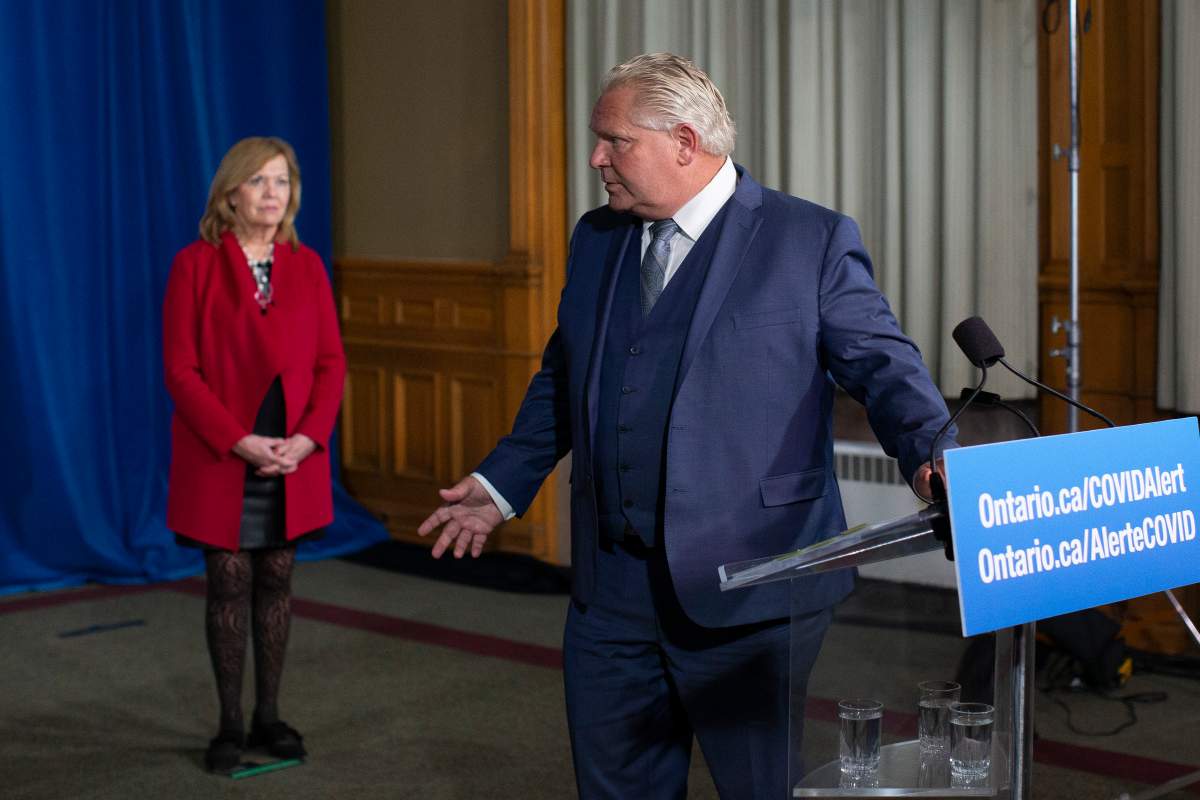Most messaging throughout the pandemic has focused on fear. For almost a year, politicians and senior civil servants the world over have stood next to scary-looking projections and told us how bad things will get if we don’t act.

“We are in a crisis. That is how I can describe it. It is scary and we need to work together,” Ontario Premier Doug Ford said earlier in January after seeing the latest modelling for Ontario.
READ MORE: Traffic data shows more people staying home to combat COVID-19 in Toronto, city officials
A senior public health official followed up: “We don’t want people dying, we don’t want ICUs overwhelmed, we don’t want morgues overrun.”
These words are recent and clear, but neither Ontario nor Canada is unique in its use of fear-infused messaging over the course of the COVID crisis.
Early in the pandemic (and occasionally since then), that was probably necessary. People needed to realize that we were well outside the realm of “normal,” and that they were being asked for something quite extraordinary.
Fear makes us vigilant; it makes us sit up and pay attention. The research supports that view pretty strongly. Fear is a good short-term strategy.
But fear isn’t sustainable.

Something that terrifies us the first time is much less scary the second time around. Getting the same response — the same level of vigilance from citizens — requires scarier and scarier things. The research shows us that, too. (Sadly, COVID has been up to the task of showing itself again and again to be more scary than we had previously thought. And it isn’t over yet.)
Messaging often focuses on the terrible things that will happen if we don’t sustain vigilance. And governments have often shown themselves reticent to celebrate success, worrying that citizens will ease up and the virus will rage like wildfire.

Get breaking National news
But the same research showing how effective fear is in the short-term shows how important it is for public officials to make it clear that our actions can make a difference. Without that validation,e don’t feel that our efforts accomplish anything, which over time leads us from fear to despair. And at that point, effort feels wasted. If our actions don’t have an impact, there really is no reason to keep struggling so damn hard all the time.
How do we avoid despair? By telling stories of our communal success. Looking at recent case counts, what we see is that, over the holiday period, there was a strong alignment between the right policy choices by governments and the right day-to-day decisions from citizens. As a result, we’ve seen daily caseloads come down substantially. Quebec was consistently registering over 2,500 new cases a day earlier in the month, and now it’s getting down closer to 1,500. Ontario was over 3,500, now coming down closer to 2,500. There are similar stories in other provinces (though Saskatchewan and New Brunswick are still struggling. They need our support right now from all across the country; we need to hang together.)
We put in the hard work, and now we’re seeing the fruits of our labour. We can have an impact on this pandemic. We do have a say in our own fate.
In times of bad news, there’s been little hesitation to tell us how dire things are. Now there’s some good news but the responses have been a bit lukewarm.
Quebec Premier François Legault said, “Things are going in the right direction over the past 10 days but we need to reduce the number of hospitalizations.”
There’s little acknowledgment that things are getting better because of what we all did (including his own government’s actions, I would add) and immediately after acknowledging progress the focus is brought right back to what isn’t going well.
Throughout this pandemic, there have been many efforts to help people “see past the numbers,” to feel the stories of hardship and tragedy that these statistics pave over. Research on motivation shows us that there are more stories to tell in order to get through this crisis. Those dropping case counts aren’t just statistics. They’re stories too, stories about good decisions and follow-through, from both governments and citizens. These are stories about all of us.
Brooke Struck is Research Director at The Decision Lab, a Canadian social enterprise that uses behavioural science research and consulting to improve society. Before joining TDL, Dr. Struck consulted in evidence-based policy and data-driven decisions, advising clients such as the European Commission, the US National Science Foundation, and the Government of Canada.








Comments
Want to discuss? Please read our Commenting Policy first.